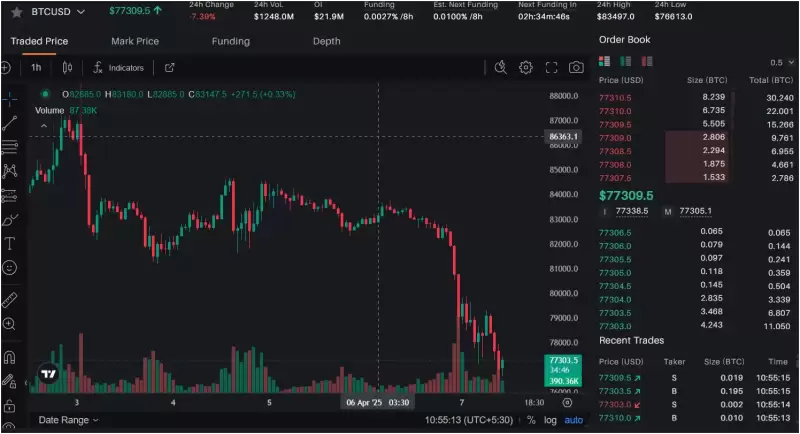 |
|
 |
|
 |
|
 |
|
 |
|
 |
|
 |
|
 |
|
 |
|
 |
|
 |
|
 |
|
 |
|
 |
|
 |
|
全球經濟格局正在不斷變化,最新的中斷之一來自美國前總統唐納德·特朗普(Donald Trump)的關稅

The global economic landscape is in a state of flux, with one of the latest disruptions coming from former U.S. President Donald Trump’s imposition of tariffs, including a 10% baseline tariff effective from April 9.
全球經濟格局處於不斷變化狀態,其中最新的中斷來自美國前總統唐納德·特朗普(Donald Trump)對關稅的徵收,其中包括4月9日起10%的基線關稅。
These tariffs could have far-reaching consequences for countries within the BRICS bloc (Brazil, Russia, India, China, and South Africa). As the world’s second-largest economy, China, and other BRICS nations grapple with the effects of these tariffs, the question arises: Can BRICS emerge victorious from Trump’s tariff policies?
這些關稅可能會對金磚四國(巴西,俄羅斯,印度,中國和南非)的國家產生深遠的影響。作為世界第二大經濟體,中國和其他金磚國家國家應對這些關稅的影響,問題出現了:金磚國家能否從特朗普的關稅政策中獲得勝利?
Trump’s tariffs, particularly those targeting imports from China, have been a significant point of contention in international trade. His “America First” approach led to a trade war, especially with China, which is a major U.S. trade partner. These tariffs were designed to curb China’s trade surplus with the U.S. and encourage more domestic production in the United States. However, as the tariffs spread to other regions, the BRICS nations found themselves in the spotlight as potential losers in the global trade battle.
特朗普的關稅,尤其是針對中國進口的關稅,這是國際貿易中的重要爭議點。他的“美國第一”方法導致了貿易戰,尤其是與美國的主要貿易夥伴的中國。這些關稅旨在遏制中國與美國的貿易盈餘,並鼓勵美國更多的國內生產。但是,隨著關稅蔓延到其他地區,金磚國家將自己視為全球貿易鬥爭中潛在的失敗者。
For China, Trump’s tariffs have directly impacted its exports to the U.S. This means that China may need to shift its trade focus to other markets. However, this has opened up opportunities for BRICS nations in terms of forging deeper trade relations within the group and with emerging markets. With the shift in global supply chains, there is potential for BRICS nations to capitalize on this disruption.
對於中國來說,特朗普的關稅直接影響了對美國的出口,這意味著中國可能需要將其貿易重點轉移到其他市場。但是,這已經為整個集團內部和新興市場建立了更深層次的貿易關係而為金磚國家打開了機會。隨著全球供應鏈的變化,金磚國家有可能利用這種破壞。
One of the key advantages that BRICS could gain from Trump’s tariffs is the potential for deeper economic integration within the bloc. Historically, BRICS countries have sought to strengthen their economic ties and reduce dependency on the West. With Trump’s tariffs limiting trade between the U.S. and China, countries within the BRICS group could step in to fill the void by enhancing intra-BRICS trade. This could lead to a more resilient, diversified economy for these nations, less reliant on the U.S. and Europe.
國際足聯可以從特朗普的關稅中獲得的主要優勢之一是集團內部更深入的經濟融合的潛力。從歷史上看,金磚國家試圖加強其經濟聯繫並減少對西方的依賴。隨著特朗普的關稅限制了美國與中國之間的貿易,金磚國家組織內部的國家可以通過增強大腦內部貿易來填補空白。這可能會導致這些國家的更具彈性,多樣化的經濟,對美國和歐洲的依賴程度較低。
BRICS nations could also benefit from the diversification of supply chains. The trade war initiated by Trump has caused many countries to reconsider their reliance on China and the U.S. for manufacturing and supply chains. BRICS countries, especially India, Brazil, and South Africa, could benefit from this shift. India, for instance, has the potential to attract more manufacturing businesses as companies look for alternatives to China. Brazil could see a boost in its agricultural exports to countries that were previously reliant on Chinese imports. South Africa, with its abundant resources, might emerge as an important player in the global supply chain.
金磚國家也可以從供應鏈的多元化中受益。特朗普發起的貿易戰使許多國家重新考慮了對中國和美國在製造和供應鏈中的依賴。金磚國家,尤其是印度,巴西和南非,可以從這一轉變中受益。例如,印度有可能吸引更多的製造業業務,因為公司尋找中國的替代品。巴西可以看到其對以前依賴中國進口的國家的農業出口。南非擁有豐富的資源,可能會成為全球供應鏈中的重要參與者。
Moreover, Trump’s tariffs have sparked frustration among other nations in the developing world who feel disadvantaged by U.S. trade policies. As a result, BRICS nations, particularly Brazil, Russia, and India, might find themselves in a better position to cultivate diplomatic and economic ties with these frustrated nations. Through initiatives like the New Development Bank (NDB), BRICS could leverage its collective influence to forge stronger partnerships with developing countries, offering them an alternative to Western-dominated financial institutions.
此外,特朗普的關稅激發了發展中國家的其他國家的挫敗感,這些國家感到被美國貿易政策不利。結果,金磚國家,尤其是巴西,俄羅斯和印度,可能會發現自己處於更好的位置,可以與這些沮喪的國家建立外交和經濟聯繫。通過諸如新開發銀行(NDB)之類的倡議,金磚國家可以利用其集體影響力與發展中國家建立更牢固的伙伴關係,為它們提供了以西方為主的金融機構的替代品。
Another interesting development to watch is BRICS’s push for a new global reserve currency. One of the more ambitious long-term goals of BRICS is to challenge the dominance of the U.S. dollar in global trade and finance. With the U.S. imposing tariffs and shifting towards a more protectionist stance, BRICS could accelerate efforts to diversify the global reserve currency system. The idea of creating a BRICS-backed currency or increasing the use of the Chinese yuan in global trade could gain momentum in the coming years. Countries outside the bloc may view this as a viable alternative to U.S. economic hegemony.
值得關注的另一個有趣的發展是國際公路(Brics)推動新的全球儲備貨幣。金磚國家的長期目標之一是挑戰美元在全球貿易和金融方面的統治地位。隨著美國對更具保護主義的立場施加關稅並轉移,金磚國家可以加速使全球儲備貨幣體系多樣化的努力。在未來幾年中,建立一個金磚國家支持的貨幣或增加中國人民幣在全球貿易中使用的想法可能會帶來動力。集團以外的國家可能認為這是美國經濟霸權的可行替代品。
However, despite these opportunities, the BRICS nations face several hurdles in fully capitalizing on Trump’s tariffs.
然而,儘管有這些機會,但金磚國家在充分利用特朗普的關稅方面面臨了幾個障礙。
Some BRICS nations, like Brazil and South Africa, face political instability, which could undermine their ability to attract investment and maintain steady economic growth. Political uncertainty could hinder the ability of these nations to implement necessary reforms and take full advantage of the shifting global trade patterns.
一些金磚國家(如巴西和南非)面臨政治動盪,這可能會破壞其吸引投資並維持穩定經濟增長的能力。政治不確定性可能會阻礙這些國家實施必要的改革並充分利用不斷變化的全球貿易模式的能力。
Several BRICS nations, particularly Brazil, Russia, and South Africa, remain heavily dependent on commodity exports like oil, metals, and agricultural products. While these exports may see demand increases, price volatility could undermine the long-term benefits of tariff-induced shifts in global trade patterns. For these nations, diversifying their economies away from commodity reliance remains a major challenge.
幾個金磚國家,尤其是巴西,俄羅斯和南非,仍然嚴重依賴石油,金屬和農產品等商品出口。儘管這些出口可能會增加需求的增加,但價格波動可能會破壞關稅引起的全球貿易模式轉變的長期收益。對於這些國家而言,將其經濟從商品依賴中度過多樣化仍然是一個重大挑戰。
BRICS countries have very different economic structures, which means they may struggle to form a cohesive, unified economic strategy. China, with its advanced manufacturing base, is significantly different from India and Brazil, which rely more on services and agriculture. This economic disparity could limit the effectiveness of any collective action or economic policy among the group.
金磚國家的經濟結構非常不同,這意味著他們可能難以形成凝聚力,統一的經濟戰略。中國具有先進的製造基地,與印度和巴西有很大不同,這些印度更多地依賴於服務和農業。這種經濟差異可能會限制該集團中任何集體行動或經濟政策的有效性。
Overall, while Trump’s tariffs may have initially posed significant risks for BRICS nations, these countries have the potential to turn this challenge into an opportunity. By increasing intra-BRICS trade, diversifying supply
總體而言,儘管特朗普的關稅最初可能對金磚國家構成了重大風險,但這些國家有可能將這一挑戰變成機會。通過增加大腦內部貿易,多元化的供應
免責聲明:info@kdj.com
所提供的資訊並非交易建議。 kDJ.com對任何基於本文提供的資訊進行的投資不承擔任何責任。加密貨幣波動性較大,建議您充分研究後謹慎投資!
如果您認為本網站使用的內容侵犯了您的版權,請立即聯絡我們(info@kdj.com),我們將及時刪除。
-

- Cardano(ADA)價格方法方法可以觸發更高級別的突破水平
- 2025-04-08 19:25:13
- 目前,頂級山寨幣的交易價格為0.73美元,越來越接近幾週內已經發展的對稱三角形模式的頂點。
-

- Rexas Finance(RXS)在2025
- 2025-04-08 19:25:13
- 像許多其他市場一樣,加密貨幣市場永遠不會停滯不前,新項目正在與已建立的網絡競爭。
-

-

- Lightchain AI是取代Solana的主要候選人
- 2025-04-08 19:20:12
- 專家說,Solana將在短期內保持低於$ 400的$ 400點。因此,投資者已經開始研究其他替代方案
-

-

-

-

- 以太坊(ETH)價格難以從第1季度2025年恢復
- 2025-04-08 19:10:14
- 以太坊是市場資本化的第二大加密貨幣,在2025年4月上旬繼續與價格恢復鬥爭。
-

























































